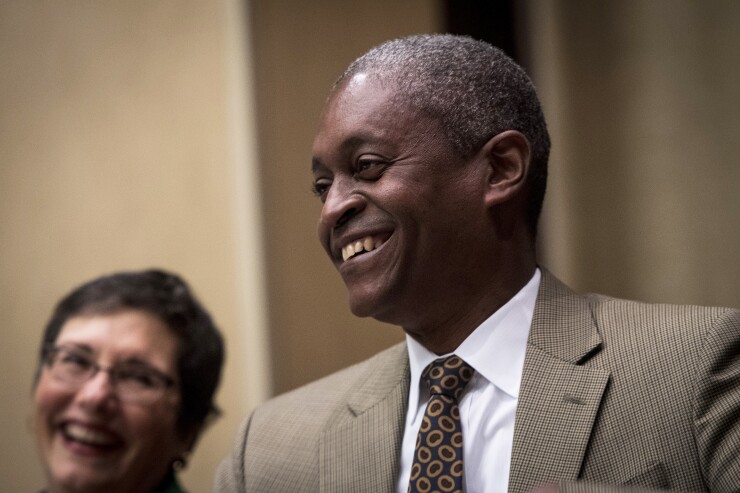Writing off soft inflation, Federal Reserve Bank of Atlanta President and CEO Raphael Bostic believes gradual rate increases will remain appropriate for the “next couple of years,” but tax reform "could move the needle."

“Under my baseline scenario, I think it will be appropriate for interest rates to rise gradually over the next couple of years, as our policy position is still very accommodating rather than neutral,” Bostic said in a speech in Montgomery, Ala., according to prepared text released by the Fed. “How gradual that pace will be depends on the strength of the incoming macroeconomic data and what it implies for the economic outlook.”
And although inflation numbers have disappointed in 2017, he said, “While I’m still holding to the view that the recent weakness largely reflects idiosyncratic noise, I’ll be watching the next few inflation reports closely for signs of a pickup.”
Economic growth has been “reasonably solid” lately, despite hurricanes in the South.
“In my view, the national economy is nearing full employment, meaning that a spike in demand could push the economy beyond its sustainable capacity,” he said. This would put pressure on labor costs, as businesses would have to compete more aggressively for an increasingly limited pool of available workers.”
But, “businesses overall do not expect a surge in growth,” Bostic said, adding “Neither do they expect to see an upshift in growth for cost pressures, including labor costs.”
Tax reform could spur the economy, he noted. “We’ve started conversations with our contacts to see how changes to the structure of corporate taxes might change their thinking about investment and business expansion,” Bostic said. “But, as everyone knows, the devil is in the details, and it’s too early to know how we would incorporate the impact of fiscal policy changes into our outlook until we see those details.”





